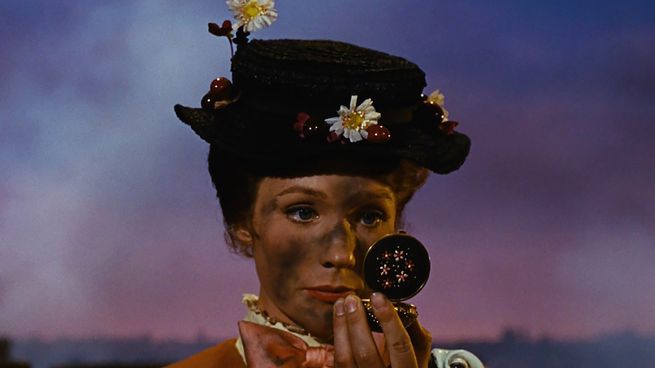England removed the “suitable for minors” rating from the Disney classic with Julie Andrews, who is about to turn 60, but not for the reasons contained in the film and they would have been worth a family discussion.
Why did “Mary Poppins” stop being a film Suitable for All Audiences (U = Universal) in England? In one of those resolutions that cause more fun and commotion than practical usefulness, the British Board of Film Classification, that is, the British Board of Film Rating, has ruled that “Mary Poppins” is not suitable for minors. About to turn 60 (next August 27), the new qualification is Parental Guidance (PG)that is, children will only be able to see it in the company of their parents, who will explain to them what is morally wrong in that work.
The content you want to access is exclusive to subscribers.
And what is wrong? “Mary Poppins”, set at the beginning of the 20th century, has elements that could certainly motivate a family talk today: for example: dismantles too formal education, questions solemn people, feminists and bankers, makes present the existence of poverty, old age and prejudices, includes a veiled reference to the suicide of those left without work, a crazy old man speaks in derogatory way of women who want to get a job, one penguin hits another just for fun, people smoke like in the old days and Mary likes to drink a little alcohol instead of medicine, all of which makes for a good dialogue between parents and children. But the only detail that the Board considered is another, of greater importance among Anglo-Saxons with a guilty conscience for their colonialist past: the mad admiral (Reginald Boom) uses the word “Hottentots” a couple of times.


The explanation is worth it: in distant times, near the Cape of Good Hope, there was a strongly warlike African tribe, which For decades, it faced the Portuguese, Germans, Dutch, Boers, and also other tribes in the region, until, for worse or worse, forced coexistence began. It was the Khoikhoi tribe, whom the Dutch called Hottentotts., which in their slang means stutterers, due to the way they speak, repeating short, almost syllabic, incomprehensible words. On the other hand, the need to be cautious was more than understandable, because the attacks of these people were terrible.
Hence in the film the crazy old man, baptized Admiral Boom, When he sees the chimney sweeps, all dirty with coal, dancing at night on the terraces, he mistakes them for Hottentots and orders them to open fire with cannon fire. (and since it’s a comedy, the cannon doesn’t shoot bullets, but fireworks). Attention, In the original novel by Pamela L. Travers this character is barely mentioned, in a few lines that describe his picturesque and imposing house, the pride of the neighborhood. It was Bill Walsh and Don DaGradi, two right-hand men of Walt Disney, who adapted the novel and developed the character.painting him as a ridiculous old man with a slight German accent, for more glory (an obsessive compulsive, some scholars have said).
Returning to the warrior tribe, there in Africa. With that background and bad reputation, in some places until mid-century the word Hottentot was synonymous with “ugly and quarrelsome black man.” Afterwards it fell into disuse, except perhaps in some English soccer fields, which would have motivated the Board’s decision, although it is difficult for children to leave the cinema repeating that word, when there is another one that takes the laurels and is very contagious. , supercalifragilisticexpialidocious.
In any case, the new rating will only apply to the anniversary screenings planned for some British theaters, and perhaps to a re-release for nostalgic grandparents. Out of this, The Hottentots appear in some little-disseminated adventure novels by Jules Verne and Rider Haggard, in an episode of Mortadelo and Filemón where there is a character nicknamed Paco El Hottentote, and in “Namibia”, where they are the majority. Not to be confused with Narmia.
Source: Ambito
I am an author and journalist who has worked in the entertainment industry for over a decade. I currently work as a news editor at a major news website, and my focus is on covering the latest trends in entertainment. I also write occasional pieces for other outlets, and have authored two books about the entertainment industry.




